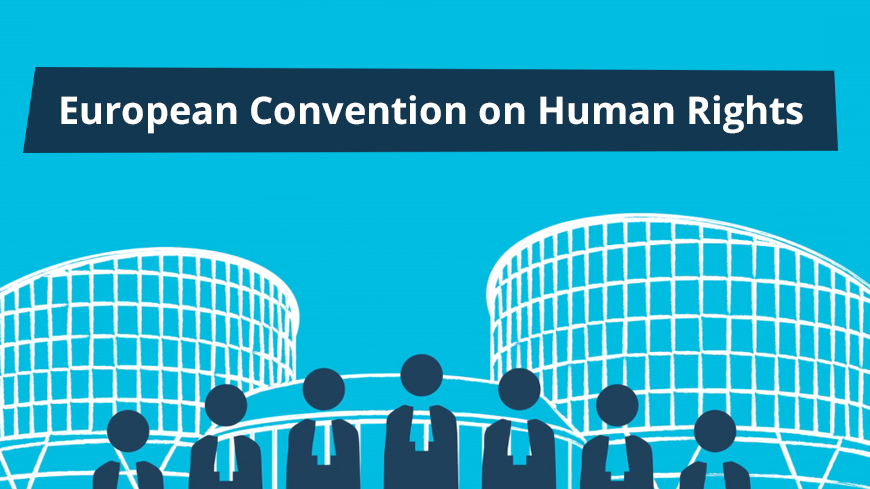After Monday’s High Court ruling granting the government right to press ahead with the Rwanda deportation scheme, the UK ECHR (European Convention of Human Rights) membership may come to an end next year. The PM dodged the issue when quizzed by the SNP’s Joanna Cheery. Repeatedly, Sunak refused to be drawn on whether the UK would leave the ECHR to enable it to reduce the asylum application backlog on its own terms. Earlier this year, the ECHR stopped the first flight to Rwanda. The European Court of Human Rights concluded that the Rwanda policy would pose “a real risk of irreversible harm”.
With the backlog of immigration cases now at a staggering 117,000, Monday’s High Court ruling on Rwanda was warmly welcomed by the government. It stipulates that it is lawful for the government to remove asylum seekers to Rwanda. Whether it requires an end to UK ECHR membership or changes to the Human Rights Act remains unclear. Speaking at the Commons Liaison Committee, Rishi Sunak said:
“You will see the legislation next year and no doubt we will have the opportunity to debate it then but I wouldn’t want to speculate on that now.
“We will introduce legislation in the new year that will achieve the aim I set out. I am confident that we can deliver on that plan and it will make a difference and reduce the number of boats arriving.”
Justice Secretary Dominic Raabe and Home Secretary Suella Braverman suggested that the UK may withdraw from the ECHR so it can implement its own immigration policies.
The PM told the Commons Liaison about his resolve to clear the backlog of immigration cases which now stands at 117,000:
“I think it would represent one of the most significant reductions in the backlog we have seen. If we can go further I would absolutely love to.”
What are the UK ECHR membership obligations?
The UK signed the European Convention on Human Rights back in 1950 thus committing to upholding a number of fundamental rights such as the right to life, freedom of expression, and the right to a fair trial. The Human Rights Act gives citizens the scope to take legal action against the state if they feel their ECHR rights have been violated.
If the UK was to withdraw from the ECHR it would be free to proceed with a broad range of policies without fear of legal consequences. Human rights organisations have warned that the end of UK ECHR membership would jeopardize the rights of all citizens. The government would be able to violate fundamental rights without the threat of legal repercussions. Furthermore, a withdrawal would also breach the Good Friday Agreement and put the peace settlement at risk.
The possibility of leaving the ECHR has long circulated among Tory MPs. Back in 2016, the then Home Secretary Theresa May said in a speech:
“The ECHR can bind the hands of parliament, adds nothing to our prosperity, makes us less secure by preventing the deportation of dangerous foreign nationals – and does nothing to change the attitudes of governments like Russia’s when it comes to human rights.
“So regardless of the EU referendum, my view is this: if we want to reform human rights laws in this country, it isn’t the EU we should leave but the ECHR and the jurisdiction of its court.”
At the time, her comments earned strenuous rejection from Michael Gove and PM David Cameron.
Migrants may be housed on empty cruise ships
Speaking to the Lords’ Justice and Home Affairs Committee, Home Secretary Suella Braverman revealed that the British government may house asylum applicants on disused cruise ships. She said that the UK government spend £5 million per day on hotels. Altogether, the UK’s estimated 2022/2023 spending on migrants is £3.5 billion with £2.7 billion going to hotels and other accommodation types.
The Home Secretary spoke of the “incredibly difficult” challenge of housing 100,000 asylum applicants in local authorities. When asked about the use of old cruise ships, Braverman said:
“We want to end the use of hotels as quickly as possible because it’s an unacceptable cost to the taxpayer, it’s over £5m a day on hotel use alone.
“We will bring forward a range of alternative sites, they will include disused holiday parks, former student halls – I should say we are looking at those sites – I wouldn’t say anything is confirmed yet.
“But we need to bring forward thousands of places, and when you talk about vessels all I can say is – because we are in discussion with a wide variety of providers – that everything is still on the table and nothing is excluded.”
No airline set to operate Rwanda flights
After the first flight to Rwanda failed to take off in June, Spanish airline Privilege Style bowed to campaigner pressure and will not operate any future flights. Negotiations with other potential carriers are ongoing.
Speaking to peers, the Home Secretary said:
“We are returning people almost every week to various countries around the world. We do that through scheduled flights, we charter flights… so we’re in a variety of discussions with several airlines for lots of different destinations.”
But, she added that the “delivery” of the Rwanda policy was “on pause, it’s on hold while we’re going through litigation.”




